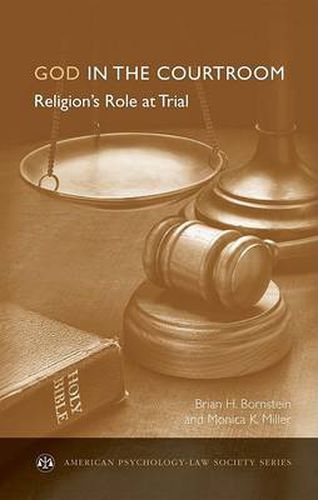Readings Newsletter
Become a Readings Member to make your shopping experience even easier.
Sign in or sign up for free!
You’re not far away from qualifying for FREE standard shipping within Australia
You’ve qualified for FREE standard shipping within Australia
The cart is loading…






While the concept of God in the courtroom evokes a few grand images, there are numerous, often subtle, ways in which religion and law intersect. For example, religious beliefs might influence the decisions of legal decision makers, such as judges and jurors. Attorneys might rely on religion, both in the way they approach their professional practice generally and in specific trial tactics (e.g., using a scriptural rationale in arguing for a particular trial outcome). This book reviews legal developments and behavioral science research concerning the effects of religion on legal practice, decision-making processes of various legal actors, and trial outcomes.
Chapters address jury selection and bias, attorneys’ use of religion in legal movements, judges’ religious beliefs and its role in their appointment, and the treatment of religious figures or institutions as litigants in court. By drawing from various research sources, the authors effectively explore the range of ways in which religion affects the actions of all of the major participants at trial: jurors, judges, attorneys, and litigants.
$9.00 standard shipping within Australia
FREE standard shipping within Australia for orders over $100.00
Express & International shipping calculated at checkout
While the concept of God in the courtroom evokes a few grand images, there are numerous, often subtle, ways in which religion and law intersect. For example, religious beliefs might influence the decisions of legal decision makers, such as judges and jurors. Attorneys might rely on religion, both in the way they approach their professional practice generally and in specific trial tactics (e.g., using a scriptural rationale in arguing for a particular trial outcome). This book reviews legal developments and behavioral science research concerning the effects of religion on legal practice, decision-making processes of various legal actors, and trial outcomes.
Chapters address jury selection and bias, attorneys’ use of religion in legal movements, judges’ religious beliefs and its role in their appointment, and the treatment of religious figures or institutions as litigants in court. By drawing from various research sources, the authors effectively explore the range of ways in which religion affects the actions of all of the major participants at trial: jurors, judges, attorneys, and litigants.